Geekbench is a benchmark suite used in many segments of the market. The benchmark is designed to run on desktops and notebooks but also phones and other devices, making it interesting for some cross-platform comparisons. Today we have the launch of the new Geekbench 6 version of the popular tool that we have had the opportunity to try out before its release.
Geekbench 6 Launched Big Benchmark Updates
There are a number of changes to Geekbench 6 to make it more modern. Here are a few of the highlights from the press release:
Geekbench 6 has replaced its testing datasets to reflect modern hardware and applications
better. These changes cover a wide range but include:
- Bigger photos in resolutions captured by modern smartphones (12 to 48MP)
- HTML examples representative of modern web design standards
- A larger library of images for import tests
- Larger maps for navigation tests
- Bigger and more modern PDF examples
- An increase in Clang workload size. (Source: Primate Labs)
For the real-world tests, there are a few new ones added to this suite:
- Background blur, as during video conferences
- Photo filters, similar to those used by modern social media apps
- Object detection for AI workloads
- Photo library for importing and semantic tagging photos and metadata
- Text processing for parsing and converting things like markdown and regex in Python (more true to real developer use cases) (Source: Primate Labs)
In addition, the company is working to bring more AI-related functions to the benchmark and better GPU support.
Testing Geekbench 6
We were able to preview the new benchmark before its release. We are going to add some embedded chips and TinyMiniMicro/ STH Mini PC systems to the results browser. Some runs we did before we had keys, but we probably have submitted around 1% of the runs to the browser up until the embargo list. Since We wanted to see what the scale was of the previous results versus the current results, here are two runs on an AMD Ryzen Threadripper Pro 3995WX on an ASUS Pro WS WRX80E-SAGE SE WiFi.
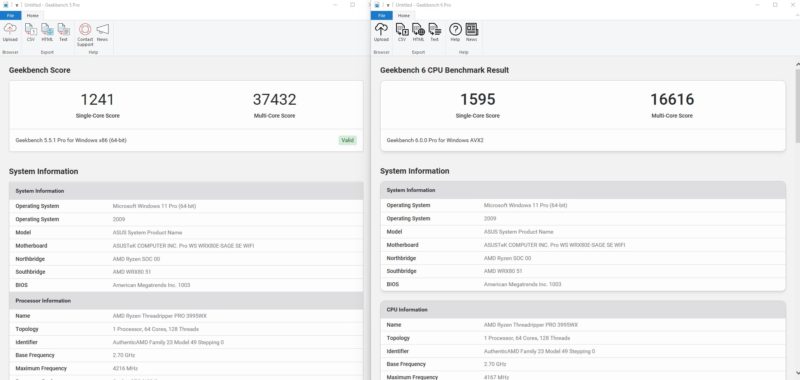
As a quick note here, the above was just a casual side-by-side run. It is not on an OS/ platform we would use for STH performance comparison purposes.
The Geekbench 6 result uses AVX2. While the company says that Geekbench 6’s larger datasets should take longer to run than Geekbench 5, this Threadripper Pro test system saw the opposite.
- Geekbench 5 Pro Run: 03:49
- Geekbench 6 Pro Run: 03:30
For those wondering if there are other versions than just the Windows x86 version, there are. There is a Mac OS and an Android version online today. We even had access to a Linux version that we ran on the Supermicro X12SDV-4C-SP6F with the Intel Xeon D-1718T.
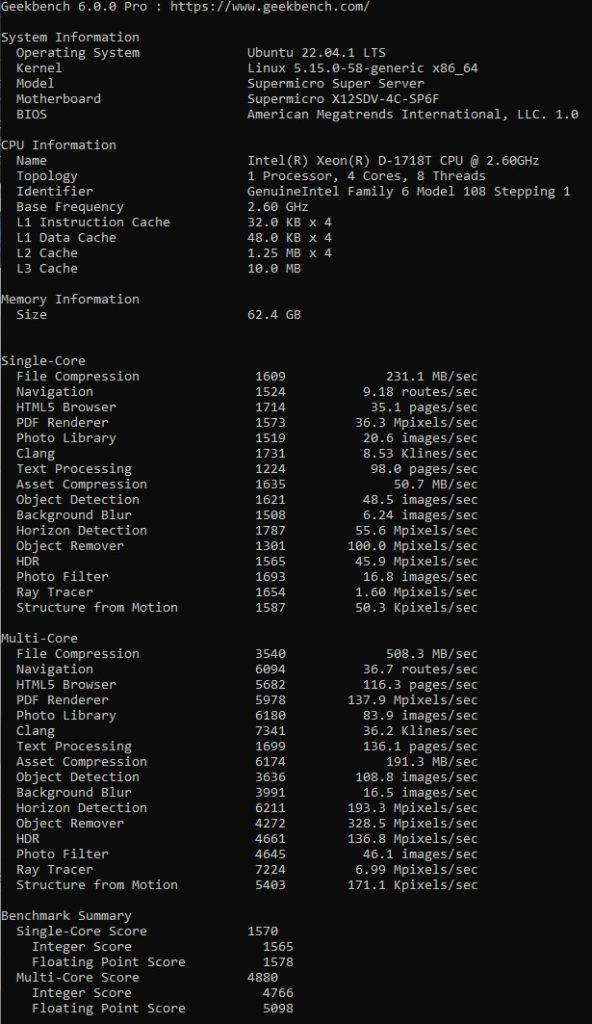
We still need to do a bit of profiling work to ensure that the results make sense. For example, the Xeon D-1718T was fairly close to the Threadripper Pro 3995WX in single-threaded workloads, often ahead, except for the Object Detection, where the AMD was at 26.1 images/ sec while the D-1718T above was 108.8 images/ sec. Also for text processing, the multi-core performance was 137.2 pages/ sec for the 64-core TR Pro while it was 136.1 for the 4-core D-1718T. From what we know about the two architectures, it feels like the Threadripper Pro 3995WX is a bit lower in performance than we would have expected overall with results in the ~3-4x the 4-core Xeon D even with 16x the number of cores.
Final Words
We asked about a Windows Arm version and were told that it was slated for a 6.1 release. It seems like the initial release was focused more on the most popular platforms. Our other sense is that there is a chance that as the benchmark suite is used more, tunings will come out for lower-volume platforms like 64-core and multi-CPU workstations.
In the meantime, we will likely add this first to the STH Mini PC series since we have been using Geekbench there quite a bit.

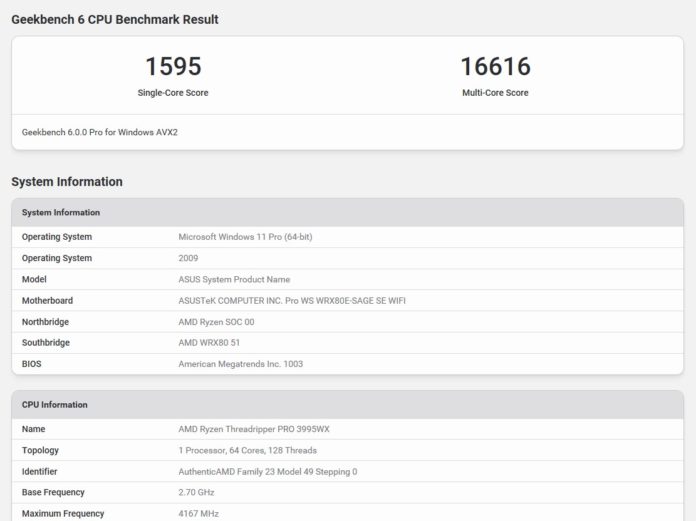
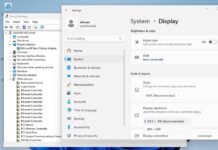
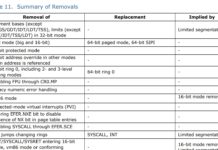
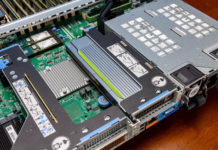
There’s something wrong with the multi-threaded results.
No Xeon/Epyc and no Threadripper PRO 5995WX has more points than 13900k or 7950x on the geekbench browser.
That, and only ~10x MC vs SC on that 64 core Threadripper? That can’t be right. Smells like the test isn’t hitting all possible threads.
We’ve tested an Amazon EC2 c6a.metal instance:
Name: AMD EPYC 7R13 48-Core Processor
Topology: 2 Processors, 96 Cores, 192 Threads
https://browser.geekbench.com/v6/cpu/65899
Its 15400 Multi-Core score makes absolutely no sense in comparison to current top scores of 13900KS with a 25500 Multi-Core score. Even some Android 8 core smartphones score higher than that?!
https://browser.geekbench.com/v6/cpu/multicore
Citing the Geekbench blog:
“The multi-core benchmark tests in Geekbench 6 have also undergone a significant overhaul. Rather than assigning separate tasks to each core, the tests now measure how cores cooperate to complete a shared task”
So they moved away from scaling like SPEC does with multiple instances of the same bench and try to do MT with shared tasks.
Problem: Sub-benchmarks like file compression or asset compression should still scale very nicely with core count, but they do not when I look at the results.
Lasertoe – I have already sent that to the GB team as feedback.
So it looks like these tests will favor Ring bus architecture in multicore scores over AMD’s Mesh Architecture? In Geekebench 6 my dual 2696 v4 CPUs score higher than a 7601 which doesn’t make sense at all